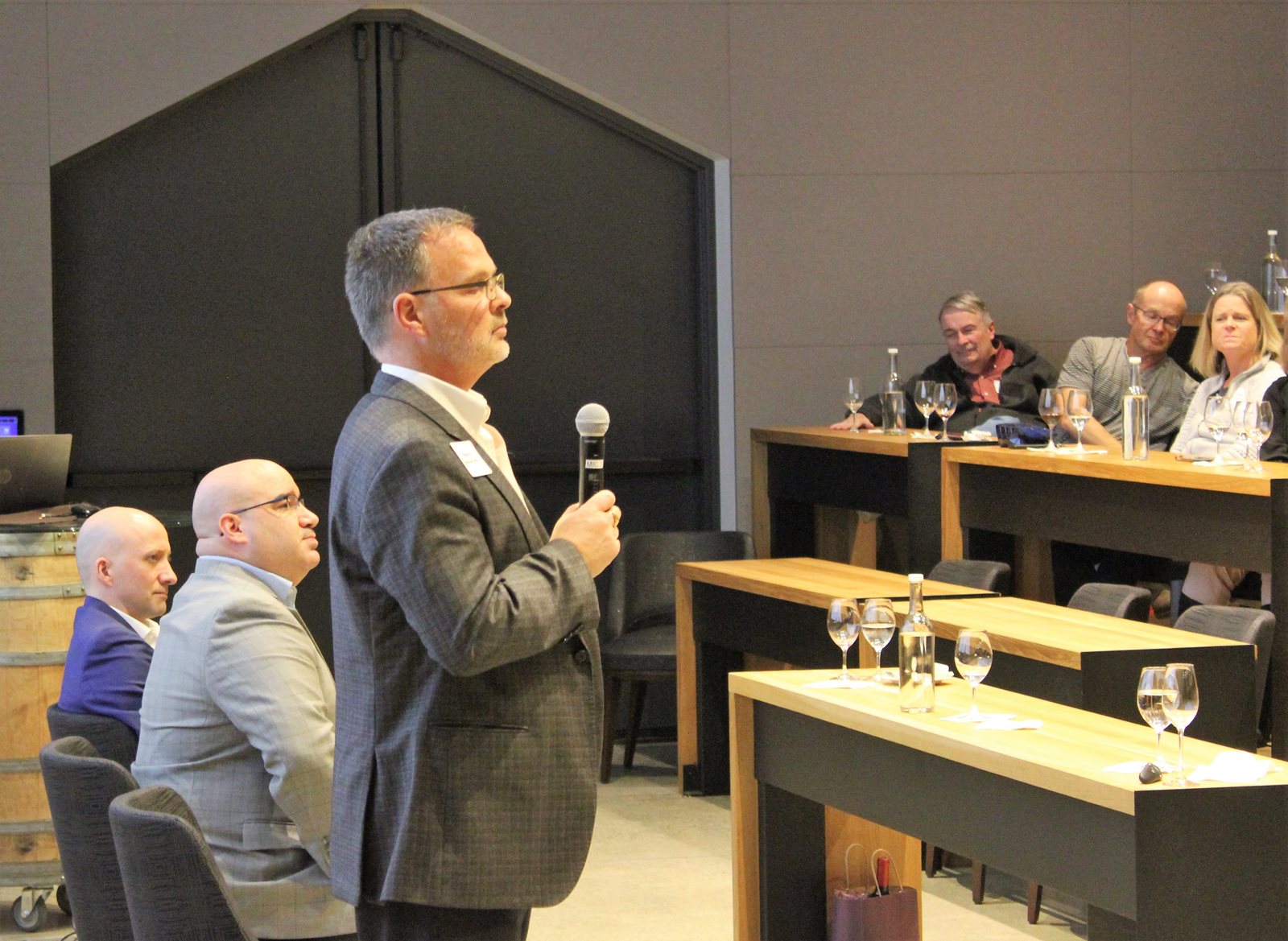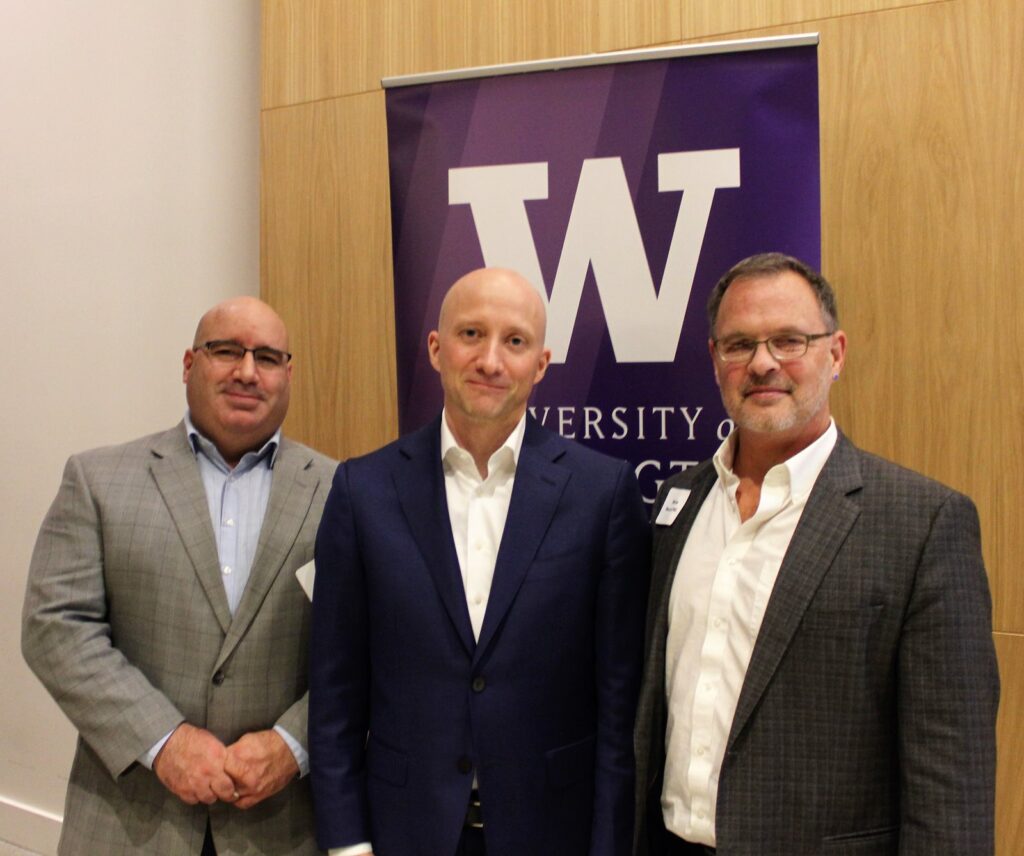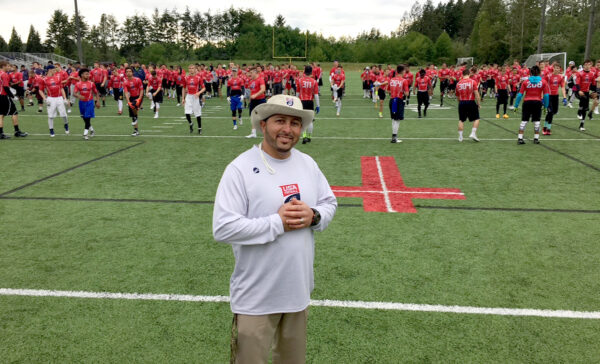
By Douglas Esser
“I’m done. I’m done,” a patient who quickly wearied of physical therapy would repeat to Aaron Bunnell, a physician at Harborview Medical Center’s Rehabilitation Clinic. But when the woman was immersed in a digital game of whack-a-mole, she stomped on moles for 30 minutes.
Bunnell told the story during “The Present and Possible Futures of Brain Health,” an event hosted by the University of Washington Bothell on Nov. 13 at the Chateau Ste. Michelle winery in Woodinville. Motivating patients through the long recovery from a stroke or neurological injury is difficult, said Bunnell, an assistant professor in the Department of Rehabilitation Medicine at the UW in Seattle. He sees promise in the “gamification” of treatments for people working to overcome paralysis or cognitive defects.
“We can make therapy fun,” Bunnell said.
Bunnell works with UW Bothell Professor Pierre Mourad (holding microphone at left), who leads undergraduate students in research projects in the School of Science, Technology, Engineering & Mathematics. They advance the idea that virtual reality (VR) simulations or augmented reality (AR) projections can make therapy a game. One therapy they have developed is about to be tested at Harborview.

With the pilot, Bunnell and Mourad will document whether the social and competitive elements of games enhance therapy. They also hope to show that computer data generated by such games can monitor the patient’s progress.
In his talk, Mourad, who also is a professor of neurological surgery at the UW in Seattle, shared his research using ultrasound to stimulate myelin, the part of a brain nerve attacked by multiple sclerosis.
“In three years, we might end up treating MS patients this way,” said Mourad, who looks for products that have a chance to improve clinical outcomes as quickly as possible. He added that ultrasound may also be used to stimulate parts of the brain and has conducted a safe experiment on himself to test his theory.
“Research is exciting for undergraduates and a hallmark of the University of Washington Bothell,” he said.
Another perspective on brain health was presented by Jesse Harper, the president and CEO of Athlete Intelligence. The Kirkland company develops wearable technology such as mouth guards and helmets with sensors to record forces athletes experience in the field of play. The real-time data can inform coaches and reduce the chance of injury. “There’s a real issue with concussion in sports,” said Harper, who is talking with Mourad about collaborating on student capstone projects.
Bunnell, Mourad and Harper also answered questions from the audience of nearly 70 people who wanted to know more about brain research, gamified therapies and improving safety for athletes.
“I am surprised at how much is going on,” said Jeff Eder, an attendee who graduated from the University of Washington in 1978 in Mechanical Engineering.
“The Present and Possible Futures of Brain Health” was a Campus Research Connection event presented by the UW Bothell Office of Research along with the UW Bothell Office of Alumni Engagement. These quarterly events provide an opportunity to hear from and talk with faculty who are making advances in research, scholarship and creative practice.



